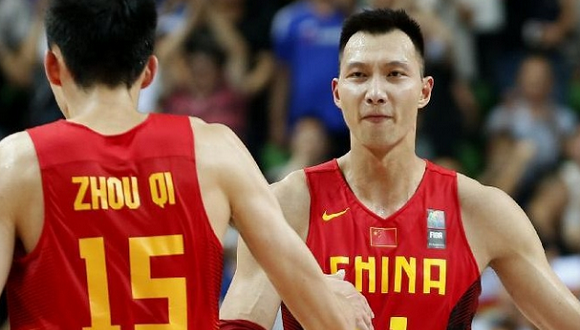Chinese men’s national basketball team crowned in the 2015 FIBA Asia Championship after defeating Philippines by 78-67 in Changsha, Hunan Province on Oct. 3rd , winning the qualification to 2016 Rio Olympics.
The Asia Championship game between China and Iran in the semi-final reportedly secured record ratings (23), demonstrating the great appeal of the sport in China.
Regardless of the triumph of Chinese national team at this event, basketabll is generally an engaging sport among Chinese fans. For instance, there were as many as 92 basketball competitions, both international and domestic, being held in China in 2011.
Additionally, China has 596,400 basketball courts which make up 36% of all sports venues in China, according to statistics in 2013.
Despite the retirement of former Superstar Yao Ming in 2009, China has not seen prominent drop in the number of engaging participants, young people particularly, of basketball ever since. China is likely to have a strong fan base of basketball with over 300 million engaging people.
The great appeal of the sport, however, does not reflect on the course of the domestic basketball leagues, majorly the CBA, of which the commercial values are still slightly tapped. Different from the most profile basketball event, NBA, which pockets over 5 billion US dollars from broadcast rights alongside sponsorships and tickets, China’s CBA is still an yearly RMB1b league with nearly 90% of the revenues coming from commercial sponsorships while broadcast rights playing an insignificant role in feeding the league and the teams .
Having spent 20 years as the top tier basketball league, the CBA did begin to experience revolutionary changes in recent years, including historic 5-year RMB2b deal with Chinese leading sports brand Li Ning in 2012and the newly adoption of draft system to spot talents. Even so, CBA, as China’s top tier basketball league, still has great potential in growth and improvement, especially in commercial side.
Additionally, the proposal which urges China’s basketball governing body to offload the CBA, which is still in limited progress, has been strongly called by insiders under the background of sports reform empowered by Chinese central government.
With the latest example of Chinese Super League, of which the production and broadcast rights were sold at RMB8 billion, CBA is expected to take a great lead in broadcast revenues if it could live on its own after potential separation from China’s basketball governing body in the near future.
Moreover, winning the rights to host the 2019 FIBA World Cup together with lifting the 2015 FIBA Asia Championship also increase the chances for China to usher in a new age in basketball industry.
